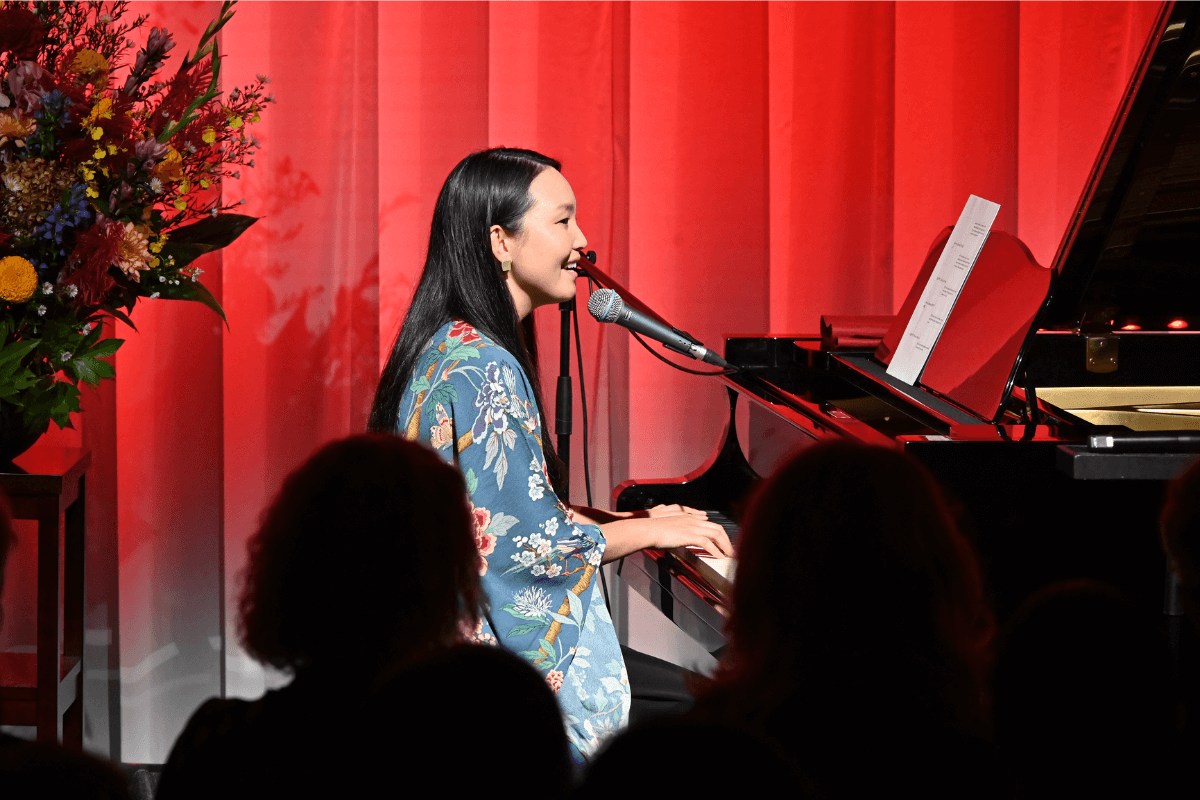One of my most memorable experiences with the MU was representing the Union at the TUC LGBT+ Conference, where I gave a speech about the importance of mental health in relation to trans and non-binary inclusion in the workplace.
Initially, I was nervous about how my voice would be received as someone who isn’t a trans or non-binary person. However, the atmosphere was incredibly supportive, and the motion was passed unanimously.
Meeting people from various industries who share the same goal of protecting LGBT+ rights and being able to share my own experiences within that context, was an invaluable experience for me.
At the same time, while the experience was deeply meaningful for me as an ally, I would like to see more trans or non-binary individuals representing the MU at conferences.
I believe it is particularly important for LGBT+ musicians to join the MU and actively engage in its committees and democratic processes—not just for their peers in the music industry, but for society as a whole.
Music transcends diverse backgrounds
We are living in increasingly challenging times for minorities and those in socially or economically vulnerable positions.
Some corporations are abolishing diversity initiatives and choosing to disregard the possibility that their workplaces may become exclusionary. In these times, what role can musicians play?
The educational philosopher and advocate of aesthetic education, Maxine Greene, argues: "I argue in part for aware engagements with the arts for everyone, so that individuals in this democracy will be less likely to confine themselves to the 'main text,' and less likely to coincide forever with what they are.
“The arts offer opportunities for perspective, for perceiving alternative ways of transcending and of being in the world, for refusing the automatism that overwhelms choice."
Her words deeply resonate with me because music has the power to make the unheard heard.
Through sound, it reveals perspectives that may have been invisible in one’s personal experience. Music transcends diverse backgrounds, speaks directly to the heart, and, at times, serves as a catalyst for social change.
Now more than ever, LGBT+ musicians must make their voices heard
By creating and sharing music from an LGBT+ perspective, we allow others to connect with these stories. This enables those outside the community to empathize with, and understand, LGBT+ experiences.
For LGBT+ individuals who may feel isolated in society, such music can serve as a lifeline and provide an invisible ally.
Now more than ever, LGBT+ musicians must make their voices heard. By joining the MU, participating in its committees, and engaging with its democratic processes, we can increase the visibility of LGBT+ musicians and contribute to creating a more inclusive and equitable future—not just within the Union, but in society as a whole.
I look forward to continuing to meet incredible musicians and others who share similar social goals through my involvement with the MU!
 Photo: Min-On Concert Association.
Photo: Min-On Concert Association.
Why I joined the MU
I joined the MU when I needed legal advice (in hindsight, I should have joined before any issues arose - lesson learned)!
A musician’s career involves frequent negotiations with various people - whether they’re colleagues, clients, or publishers - and most of the time, we must navigate these situations on our own. For me, the MU’s legal advice serves as a strong safety net, offering guidance when needed and providing representation in the event of any worst-case scenarios.
I also use the MU’s services when teaching, particularly the template agreements, which I rely on to formalize arrangements with clients. I also refer to the Union’s recommended teaching rates as a guideline for setting fees.
Additionally, my music career focuses on collaborating with musicians from around the world to promote messages of diversity, equity, and world peace. These collaborations often involve unique circumstances that span different countries, so I frequently seek advice from MU.
Now in my fifth year in the UK, I am still building connections within the British music industry, and the MU’s Christmas networking event has been a valuable opportunity for me to meet potential collaborators and promoters.
In the future, I would like to explore the MU’s grant-writing support. As a non-native English speaker, this kind of assistance would be invaluable in presenting my ideas in a more compelling and persuasive way.
LGBT+ History Month 2025
LGBT+ History Month 2025 takes place from 1 - 28 February, and aims to recognise the current struggles faced by the LGBT+ community, as well as events throughout history that have shaped society today.
This year's theme is 'Activism and Social Change', highlighting the contribution of LGBT+ people to advancing society and making the world a better place for all of us.
Join the LGBT+ Members' Network
The LGBT+ Members' Network is a space for our members who identify as LGBT+ to connect, discuss issues that impact their communities, shape Union policy, and to change the music industry and the MU for the better.